Photographs: Reuters
The Reserve Bank of India said it is closely watching the rupee situation and will respond appropriately, even as the local currency recovered against dollar by 2 per cent in the opening trade.
The Reserve Bank of India on Friday said that economic slowdown is contributing to decline in prices, but warned that inflation could bounce back on account of supply-demand mismatch.
The RBI in its mid-quarterly review, however, hinted at rate cuts in future. It had increased rates 13 times since March, 2010, to tame inflation. The central bank today kept its key policy rates unchanged.
"From this point on, monetary policy actions are likely to reverse the cycle, responding to the risks to growth," it said.
The central bank said deceleration in growth is contributing to a decline in inflation momentum which is also being helped by softening food prices.
"However, it must be emphasised that inflation risks remain high and inflation could quickly recur as a result of both supply and demand forces," it said.
Though, reassuringly, inflationary pressures are expected to abate in the coming months, RBI said that both inflation and inflation expectations are currently above the comfort level of the Reserve Bank.
. . .
Inflation can bounce back again, warns RBI
Photographs: Reuters
On annual basis, headline WPI inflation moderated to 9.1 per cent in November from 9.7 per cent in October, driven largely by decline in primary food articles inflation.
Food inflation fell to a four-year low of 4.35 per cent as on December 3.
The RBI has retained its year-end inflation projection at 7 per cent.
"With moderation in food inflation in November 2011 and expected moderation in aggregate demand and hence in non-food manufactured products inflation, the inflation projection for March 2012 is retained at 7 per cent," it said.
The apex bank will make a formal assessment of its inflation projections for 2011-12 in the third quarter review of January 2012.
RBI says it is closely watching rupee situation
The Reserve Bank of India said it is closely watching the rupee situation and will respond appropriately, even as the local currency recovered against dollar by 2 per cent in the opening trade.
. . .
Inflation can bounce back again, warns RBI
Photographs: Reuters
"...the rupee has depreciated by about 17 per cent against the US dollar since August 5, 2011...In the face of this, several measures were taken to attract inflows...The Reserve Bank is closely monitoring the developments in the external sector and it will respond to the evolving situation as appropriate," RBI said in its mid-quarter policy review.
The rupee, which has emerged as the worst performing currency in the Asian region, has fallen close to 19 per cent against the US dollar this year. It touched a historic low of 54.30 in on Thursday's trade before closing at 53.64.
The Reserve Bank of India has decided to withdraw the facility of re-booking foreign exchange contracts by companies and foreign institutional investors (FIIs) and reduced across-the-board exposure limits of banks which are authorised to deal in the foreign currency.
RBI has increased limits on investment in government and corporate debt instruments by foreign investors to cap rupee's fall against the American currency.
It has also raised the ceilings on interest rates payable on non-resident deposits and all-in-cost ceiling for external commercial borrowings.
Further, it has also initiated a series of administrative measures that discourage speculative behaviour.
. . .
Inflation can bounce back again, warns RBI
Photographs: Reuters
Rising fiscal deficit, heavy subsidies may impacat inflation
The RBI also said that key fiscal deficit indicators have worsened during the current financial year on account of rising subsidies, which has inflationary implications.
"The central government's key deficit indicators worsened during 2011-12 (April-October), primarily on account of a decline in revenue receipts and increase in expenditure, particularly subsidies... The likely slippage in this year's deficit has inflationary implications," said the RBI in its mid-quarter review of the Monetary Policy.
In the Budget, the government had proposed to bring down the fiscal deficit in 2011-12 to 4.6 per cent of the GDP from 4.7 per cent in the previous year. The task, however, appears difficult in view of the rising subsidy bill and the government's inability to raise funds from divestment of equity in state-owned companies.
Finance Minister Pranab Mukherjee recently indicated that the subsidy bill during the current fiscal will exceed the target by Rs 1 lakh crore (Rs 1 trillion) and maintaining the fiscal deficit at 4.6 per cent of the GDP will be a 'challenge'.
According to the RBI, "The fiscal deficit at 74.4 per cent of the budgeted estimate in the first seven months of 2011-12 was significantly higher than 42.6 per cent in the corresponding period last year (about 61.2 per cent if adjusted for more than budgeted spectrum proceeds received last year)."
The rising fiscal deficit, it added, could have implications for inflation, which is still close to the double-digit mark. Headline inflation was recorded at 9.11 per cent in November, though food inflation declined to a four-year low of 4.35 per cent.
. . .
Inflation can bounce back again, warns RBI
Photographs: Reuters
In view of the moderation in growth and the declining trend in inflation, the RBI kept the key rates and policy ratios unchanged.
The central bank maintained the repo (short-term lending) rate at 8.5 per cent and reverse repo (short-term borrowing) rate 7.5 per cent in its policy review.
The halt in the RBI's monetary tightening strategy comes after 13 hikes since March, 2010.
The RBI has also decided to retain the cash reserve ratio (CRR), the amount banks need to park with the RBI, at 6 per cent. The industry was expecting a marginal cut in the CRR to induce liquidity in the system and promote investment.
"I cannot really speculate on when we might start cutting rates...," RBI Governor D Subbarao said on the sidelines of an event.
The RBI will make an assessment of growth and inflation projections for 2011-12 at its third quarter review next month, the policy statement said.

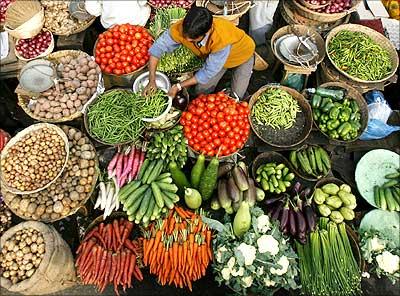
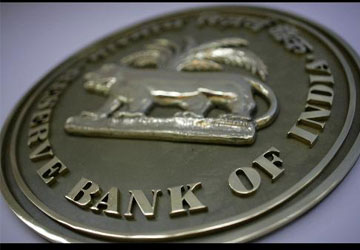
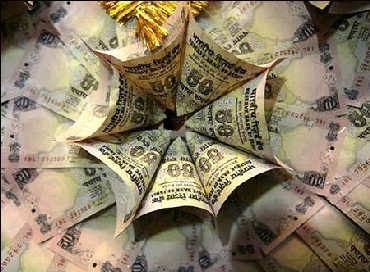
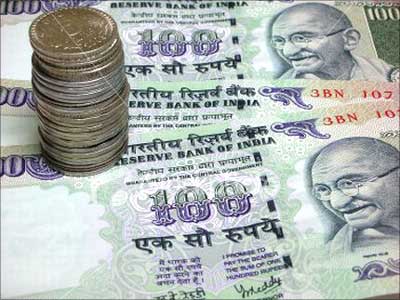
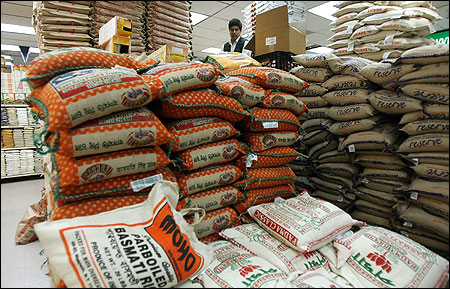
article